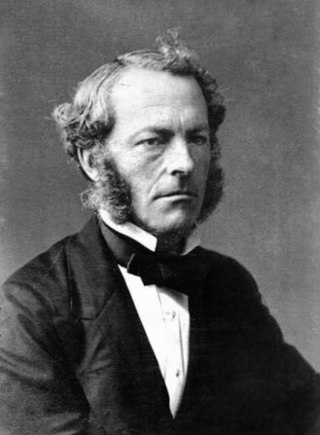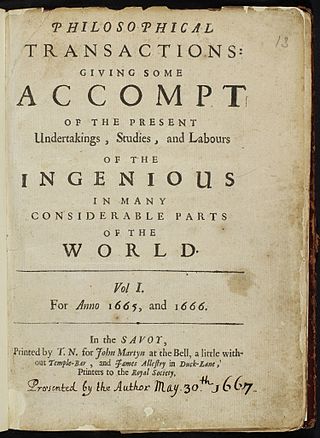
Norman Hackerman was an American chemist, professor, and academic administrator who served as the 18th President of the University of Texas at Austin (1967–1970) and later as the 4th President of Rice University (1970–1985). He was an internationally known expert in metal corrosion.

Sir George Gabriel Stokes, 1st Baronet, was an Irish mathematician and physicist. Born in County Sligo, Ireland, Stokes spent all of his career at the University of Cambridge, where he was the Lucasian Professor of Mathematics from 1849 until his death in 1903. As a physicist, Stokes made seminal contributions to fluid mechanics, including the Navier–Stokes equations; and to physical optics, with notable works on polarization and fluorescence. As a mathematician, he popularised "Stokes' theorem" in vector calculus and contributed to the theory of asymptotic expansions. Stokes, along with Felix Hoppe-Seyler, first demonstrated the oxygen transport function of haemoglobin, and showed colour changes produced by the aeration of haemoglobin solutions.

Philosophical Transactions of the Royal Society is a scientific journal published by the Royal Society. In its earliest days, it was a private venture of the Royal Society's secretary. It was established in 1665, making it the second journal in the world exclusively devoted to science, after the Journal des sçavans, and therefore also the world's longest-running scientific journal. It became an official society publication in 1752. The use of the word philosophical in the title refers to natural philosophy, which was the equivalent of what would now be generally called science.

Dalton Transactions is a weekly peer-reviewed scientific journal covering original (primary) research and review articles on all aspects of the chemistry of inorganic, bioinorganic, and organometallic compounds. It is published by the Royal Society of Chemistry and the editor-in-chief is Russell Morris. The journal was named after the English chemist, John Dalton, best known for his work on modern atomic theory. The journal was named a "rising star" in 2006.
The Journal of the Royal Society of Medicine is a peer-reviewed medical journal. It is the flagship journal of the Royal Society of Medicine with full editorial independence. Its continuous publication history dates back to 1809. Since July 2005 the editor-in-chief is Kamran Abbasi, who succeeded Robin Fox who was editor for almost 10 years.
The Electrochemical Society is a learned society based in the United States that supports scientific inquiry in the field of electrochemistry solid-state science and related technology. The Society membership comprises more than 8,000 scientists and engineers in over 85 countries at all degree levels and in all fields of electrochemistry, solid-state science and related technologies. Additional support is provided by institutional members including corporations and laboratories.
The Epidemiological Society of London was a British medical society founded in 1850 with the objective of investigating the causes and conditions which influence the origin, propagation, mitigation, and prevention of epidemic disease. In 1907 it merged with the Royal Medical and Chirurgical Society of London and became a part of the Royal Society of Medicine as the Epidemiological Section and then Epidemiology and Public Health section.

ECS Electrochemistry Letters (EEL) is a monthly peer-reviewed scientific journal covering electrochemical science and technology. It was established in 2012 and is published by the Electrochemical Society. EEL ceased publication at the end of 2015. The editors-in-chief were Robert Savinell, Gerald S. Frankel, Thomas F. Fuller, Charles L. Hussey, Shelley D. Minteer, Rangachary Mukundan, Dennis G. Peters, John Weidner, and Martin Winter. According to the Journal Citation Reports, the journal has a 2014 impact factor of 1.789.

The ECS Journal of Solid State Science and Technology is a monthly peer-reviewed scientific journal covering solid state science and technology. The editor-in-chief is Krishnan Rajeshwar. The Technical Editors are Francis D'Souza, Aniruddh Jagdish Khanna, Ajit Khosla, Peter Mascher, Kailash C. Mishra, and Fan Ren. The Associate Editors are Michael Adachi, Netz Arroyo, Paul Maggard, Meng Tao, and Thomas Thundat. The journal was established in 2012 and is published by The Electrochemical Society.

ECS Solid State Letters (SSL) is a peer-reviewed scientific journal covering the field of solid state science and technology. The journal was established in 2012 and is published by the Electrochemical Society. SSL ceased publication at the end of 2015. The editor-in-chief was Dennis W. Hess. According to the Journal Citation Reports, the journal has a 2014 impact factor of 1.162.

Electrochemical and Solid-State Letters (ESL) was a peer-reviewed scientific journal that began publication in 1998 as a joint publication of the Electrochemical Society and the IEEE Electron Devices Society. The final issue was published in 2012. The journal is now preserved as an archive, and has been replaced by ECS Electrochemistry Letters and ECS Solid State Letters.
Interface is a quarterly open access scientific journal published by the Electrochemical Society covering developments in electrochemistry and solid-state chemistry, as well as news and information about and for members of the society.

'Jose H. Zagal Moya is a Chilean scientist educated at the University of Chile with postgraduate training in the United States of America with a Ph.D. degree from Case Western Reserve University, Cleveland Ohio and postdoctoral training at Brookhaven National Laboratory, Upton, New York. At present he is a Distinguished Professor, Department of Chemistry and Materials, Faculty of Chemistry and Biology, Universidad de Santiago de Chile (USACH) where he directs the Laboratory of Electrocatalysis since 1982. He got his Ph.D. in chemistry Case Western Reserve University, US (1978) and was postdoctoral fellow at Brookhaven National Laboratory, Upton, New York, in 1982. His main research efforts are focused on the fundamentals of electron transfer reactions that are relevant for energy conversion and sensors. He has contributed in the area of electrocatalysis, electrodes modified with metal macrocyclics, electrochemistry of biological molecules, the catalysis of the reduction of molecular oxygen and many other reactions of relevance, conductive polymers, electrochemical sensors and in pioneering work in the establishment of non-linear correlations between thermodynamic properties of molecular catalysts and their electrochemical reactivity. These contributions are essential in the development of non-precious metal catalysts for energy conversion devices and electrochemical sensors. [1][2][3] He also has contributed in the field of corrosion, conductive polymers and his well-known volcano correlations for the electrocatalytic properties of surface-confined molecular catalysts

Kuzhikalail M. Abraham is an American scientist, a recognized expert on lithium-ion and lithium-ion polymer batteries and is the inventor of the ultrahigh energy density lithium–air battery. Abraham is the principal of E-KEM Sciences in Needham, Massachusetts and a professor at the Northeastern University Center for Renewable Energy Technologies, Northeastern University, in Boston, Massachusetts.

The Gordon E. Moore Medal for Outstanding Achievement in Solid State Science and Technology was established by The Electrochemical Society in 1971 to recognize individuals distinguished for outstanding contributions to solid-state science and technology. The award is presented every two years, and recipients receive a silver medal, wall plaque, cash prize, Society Life membership, and a complimentary meeting registration.
Martin Winter is a German chemist and materials scientist. His research in the field of electrochemical energy storage and conversion focuses on the development of new materials, components and cell designs for batteries and supercapacitors, lithium ion batteries and lithium metal batteries.

Doron Aurbach is an Israeli electrochemist, materials and surface scientist.
Morris Cohen was a Canadian chemist working for the National Research Council of Canada in Ottawa. He contributed to the sciences of corrosion and of oxidation of metals.
Gerardine "Gerri" Botte is a Venezuelan-American chemist who is a professor and the Whitacre Department Chair in Chemical Engineering at Texas Tech University. Her research considers electrochemical engineering and the development of sustainable manufacturing processes. Botte is editor-in-chief of the Journal of Applied Electrochemistry and a Fellow of the Electrochemical Society.
Krishnan Rajeshwar is a chemist, researcher and academic. He is a Distinguished University Professor and Founding Director of the Center for Renewable Energy Science & Technology at The University of Texas at Arlington.












